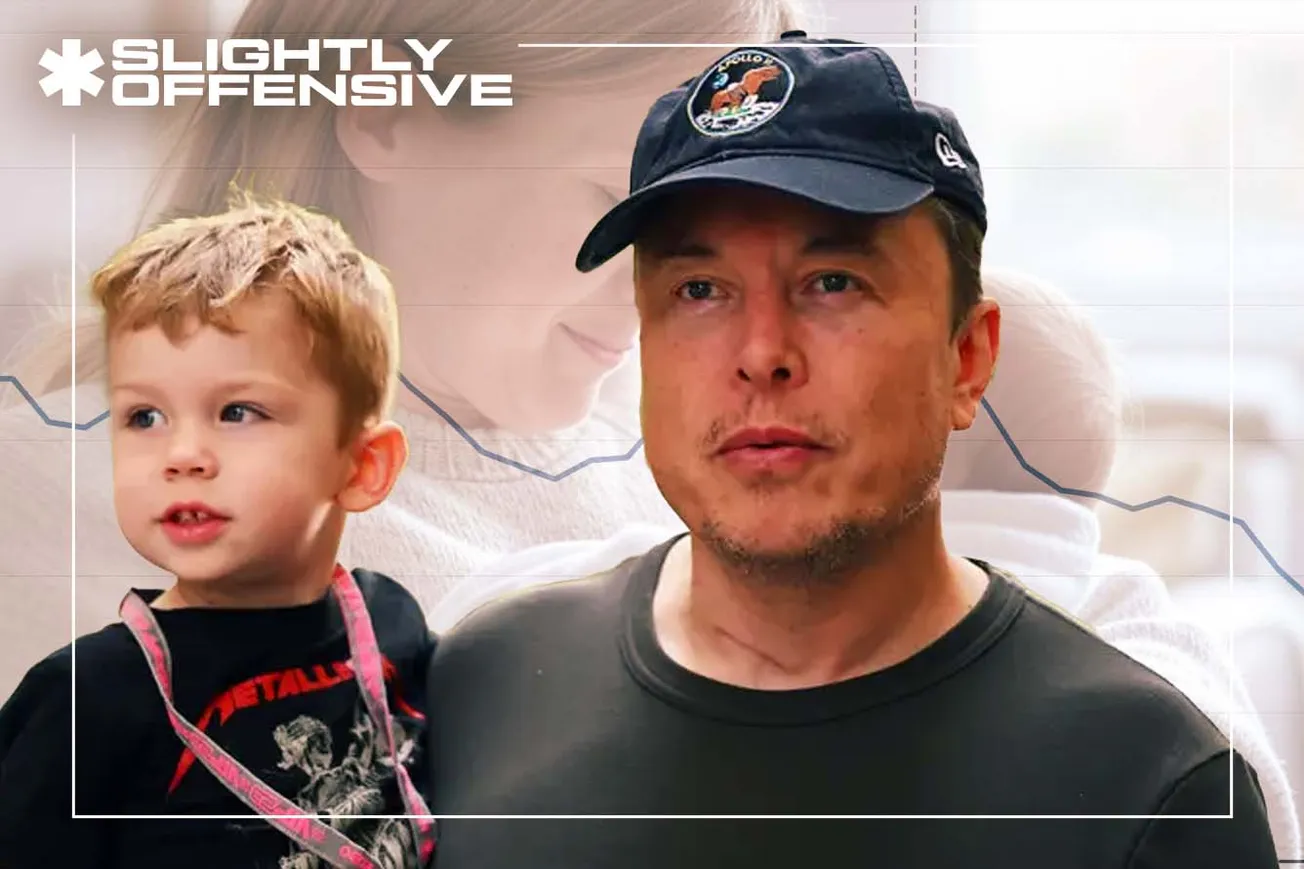In a provocative tweet, Elon Musk declared, “This is how great civilizations throughout history have ended. People assume it was due to conquest, but it was actually often simply too much prosperity leading to low birth rate and population collapse, which ultimately enabled them to be conquered.”
The billionaire’s comment echoes concerns he has voiced repeatedly about the dangers of declining birth rates. Musk has described this demographic trend as one of the “biggest risks to civilization,” pointing to countries like Japan and much of Western Europe, where birth rates have plummeted below replacement levels. But is there historical precedent for this claim, and how does it align with the challenges of our time?
This is how great civilizations throughout history have ended.
— Elon Musk (@elonmusk) January 7, 2025
People assume it was due to conquest, but it was actually often simply too much prosperity leading to low birth rate and population collapse, which ultimately enabled them to be conquered. https://t.co/ncrHlx7lPG
A Historical Lens: How Civilizations Declined
The fall of civilizations is rarely attributed to a single factor. Historically, societal collapse has often been a perfect storm of economic turmoil, political instability, environmental changes, and, sometimes, population decline. Musk’s assertion that low birth rates play a pivotal role is not without merit, but history paints a more nuanced picture.
Take the Roman Empire, for example. Its decline was marked by a combination of internal decay, economic instability, overreliance on slave labor, and military defeats. While population pressures played a role, it was the inability to adapt to these cascading challenges that sealed its fate. Similarly, the Mayan civilization experienced environmental degradation, resource depletion, and warfare, which led to societal breakdown.
While Musk’s tweet simplifies these dynamics, his concern highlights a growing issue in modern societies: declining birth rates and aging populations.
Modern Parallels: Demographic Decline in the 21st Century
Today, declining birth rates are creating significant challenges in many developed nations. Japan, often cited as a harbinger of demographic doom, has seen deaths outnumber births for over a decade. By 2050, experts predict that Japan’s population could shrink by nearly 30%. The result? A shrinking workforce, rising healthcare costs, and economic stagnation.
Other countries are following suit. In the United States, the birth rate has fallen to 1.64 children per woman, well below the replacement rate of 2.1. In South Korea, the situation is even more dire, with a fertility rate of just 0.84—the lowest in the world. Europe faces similar trends, with countries like Italy and Spain grappling with aging populations and dwindling younger generations to sustain their economies.
Musk’s concern also aligns with his broader perspective on humanity’s future. In his eyes, a declining population poses risks not only to economic stability but also to human innovation and resilience. Without enough people to sustain growth, he argues, societies may weaken, making them more susceptible to external pressures—whether economic, political, or military.
The Role of Prosperity
Musk’s tweet points to “too much prosperity” as a root cause of population collapse. This notion ties into what sociologists call the “fertility-income paradox.” As nations grow wealthier, fertility rates tend to decline. Economic prosperity often leads to increased access to education, career opportunities for women, and improved healthcare—factors that delay or reduce childbearing.
But prosperity alone doesn’t fully explain the phenomenon. Cultural shifts, changing attitudes toward family, and economic pressures like the rising cost of living also play a role. Young people in developed countries often delay starting families due to financial insecurity, housing crises, or a desire to prioritize personal goals over traditional family structures.
What Can Be Done?
If Musk’s warning is taken seriously, addressing declining birth rates will require a multifaceted approach. Governments could introduce policies like paid parental leave, affordable childcare, and financial incentives for families. Countries like Hungary and Poland have already implemented such measures, with mixed results.
Immigration can also help stabilize populations in the short term, though it often sparks contentious debates in nations already grappling with cultural and economic shifts.
Musk himself seems to advocate for a cultural rethinking of family and reproduction, calling on society to prioritize the “value of life” and encourage higher birth rates. It’s worth noting that Musk, a father of 10, practices what he preaches.
The Bottom Line
While Elon Musk’s assertion simplifies the complex factors behind the collapse of civilizations, it touches on a critical issue facing modern society. Declining birth rates, coupled with aging populations, pose significant challenges to economic stability, innovation, and societal resilience.
Whether Musk’s warning proves prophetic or overstated, one thing is clear: ignoring the demographic shifts of our time could leave modern civilizations unprepared for the challenges ahead. And as history has shown, the strength of a civilization often lies not in its prosperity but in its ability to adapt.
Please leave your opinions / comments on these stories below, we appreciate your perspective!
Sources:



![Jeremy Renner Opens Up About His Near-Fatal Accident and Incredible Recovery on Joe Rogan [WATCH]](/content/images/size/w1304/format/webp/2025/04/joe-rogan-jeremy-renner.jpg)



Conversation